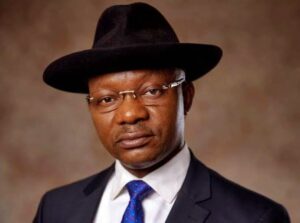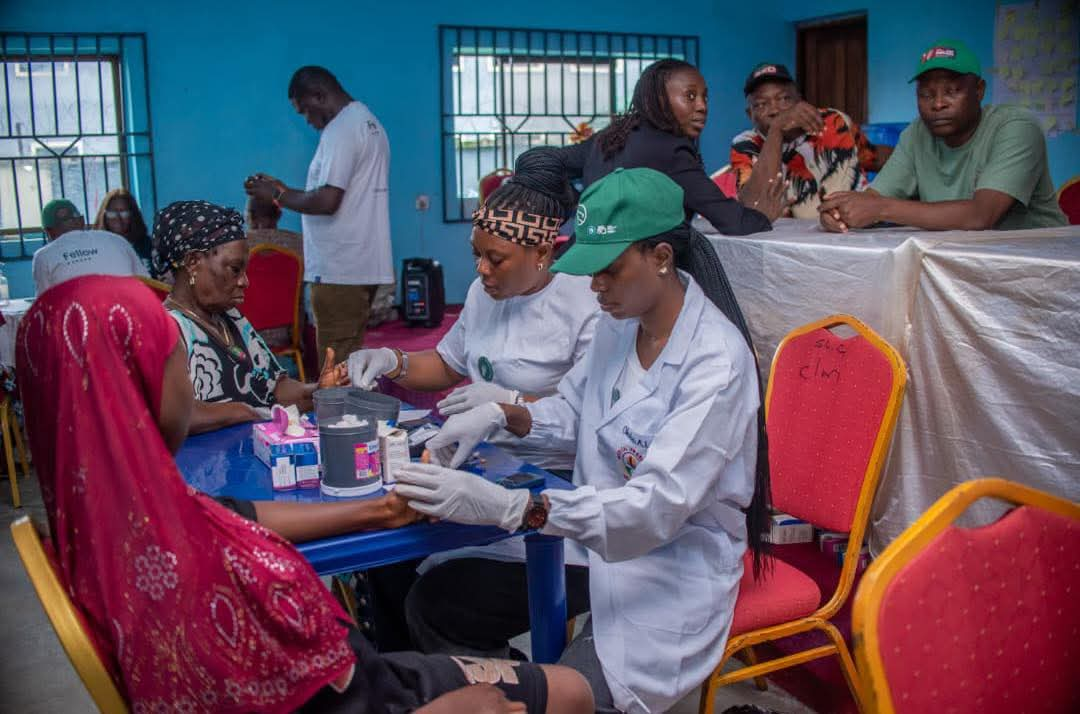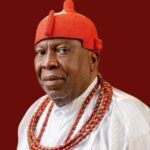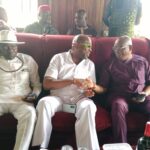Charles Aniagwu: When Tokenism Becomes an Official Policy of Delta Govt.
 By Martins Emokiniovo
By Martins Emokiniovo
Between the months of June and July 2025, a wave of protests swept through the Udu Local Government Area in Delta State. The protesters accused the state government, led by Governor Sheriff Oborevwori, of neglect and marginalization.
Key issues raised by the demonstrators included the lack of public infrastructure, the absence of state-funded mega projects, and a marked disparity in development compared to other local areas in the state. The residents, who marched in large numbers, carried placards demanding the construction of major roads vital for driving growth and development in the area.
These roads include the Udu-ECN road, the Orhuwhorun–Owhrode–Otor-Udu Ring road, and the modernization of the general hospital. Marching from different communities, the demonstrators expressed their frustration over being sidelined in project initiatives.
They pointed out that, despite hosting significant economic assets such as the Utorogun Gas facility, a steel plant, railway infrastructure, and oil pipelines, which contribute significantly to the state’s revenue, the area still lacks basic amenities like good roads, a functional hospital, and proper schools. The protests were triggered by the celebration of the state government of completing 500 projects in state with no mention of Udu.
In response to these protests, the state government, through the Commissioner for Rural Roads and Information, Mr. Charles Aniagwu, addressed a press conference.
During this media outing, the Commissioner announced a government policy that many view as tokenism: symbolic projects and appointments given to a group without addressing their real needs or structural exclusion. Rather than sincerely addressing the issues raised, the Commissioner attempted to gaslight the Udu residents, suggesting they should be grateful because they contributed nothing to the governor’s emergence or the state’s purse.
This is disrespectful of a public servant, who failed to recognize the economic significance of Udu or its contribution based on the INEC 2023 Gubernatorial results to the Governor, if that is a yardstick, project distribution.
In another show of total disregard for the Udu people, the state government, a day after the conclusion of the protests in Udu, announced approval of over twenty projects amounting to over 200 billion to be constructed in different parts of the state.
In this announcement, Udu was, again, visibly missing, and no mention of it. If there was a need for evidence to show the public that Udu was marginalised, the state government, on that day, like every other day, presented it.
As of today, many Udu residents are beginning to question whether token recognition is being used by the state government to silence genuine agitation. During the protest, a protester broke down saying, “They listed roads in Uvwie, Warri South West, and Ughelli South, and expect us to be grateful”. “But where are the schools, the roads, and the healthcare centers? What do our youths have to show for being part of Delta State?”
What is even more alarming is the pattern of excluding Udu from flagship state projects. Since 1999, the state government has executed landmark projects across Delta, but Udu has largely been bypassed. Even initiatives aimed at industrial growth and youth empowerment have barely touched the area.
While it initially appeared that the tokenism and gaslighting were limited to the Udu protests, a few days later, Isoko protesters expressed similar feelings of marginalization by the state government.
True to form, the government responded by listing token projects and once again attempted to gaslight the Isoko people. It is clear that the state government has mastered the art of placating citizens with intangible gestures while ignoring the areas in critical need.
Although Charles Aniagwu, on behalf of the state government, has adopted tokenism rather than fostering genuine inclusion in response to dissatisfied citizens, he should be reminded that this approach only deepens distrust towards the government. It is no longer sufficient to rely on tokenism while real issues remain unaddressed and communities fall into disrepair.
Development must be visible, tangible, and fairly distributed. My piece of advise is that until the state government backs its words with meaningful actions and treats Udu and other marginalised delta communities with fairness, the cries of marginalization will only grow louder, and token gestures will no longer suffice to muffle them.
Martins Emokiniovo writes from Asaba.








Leave a Reply